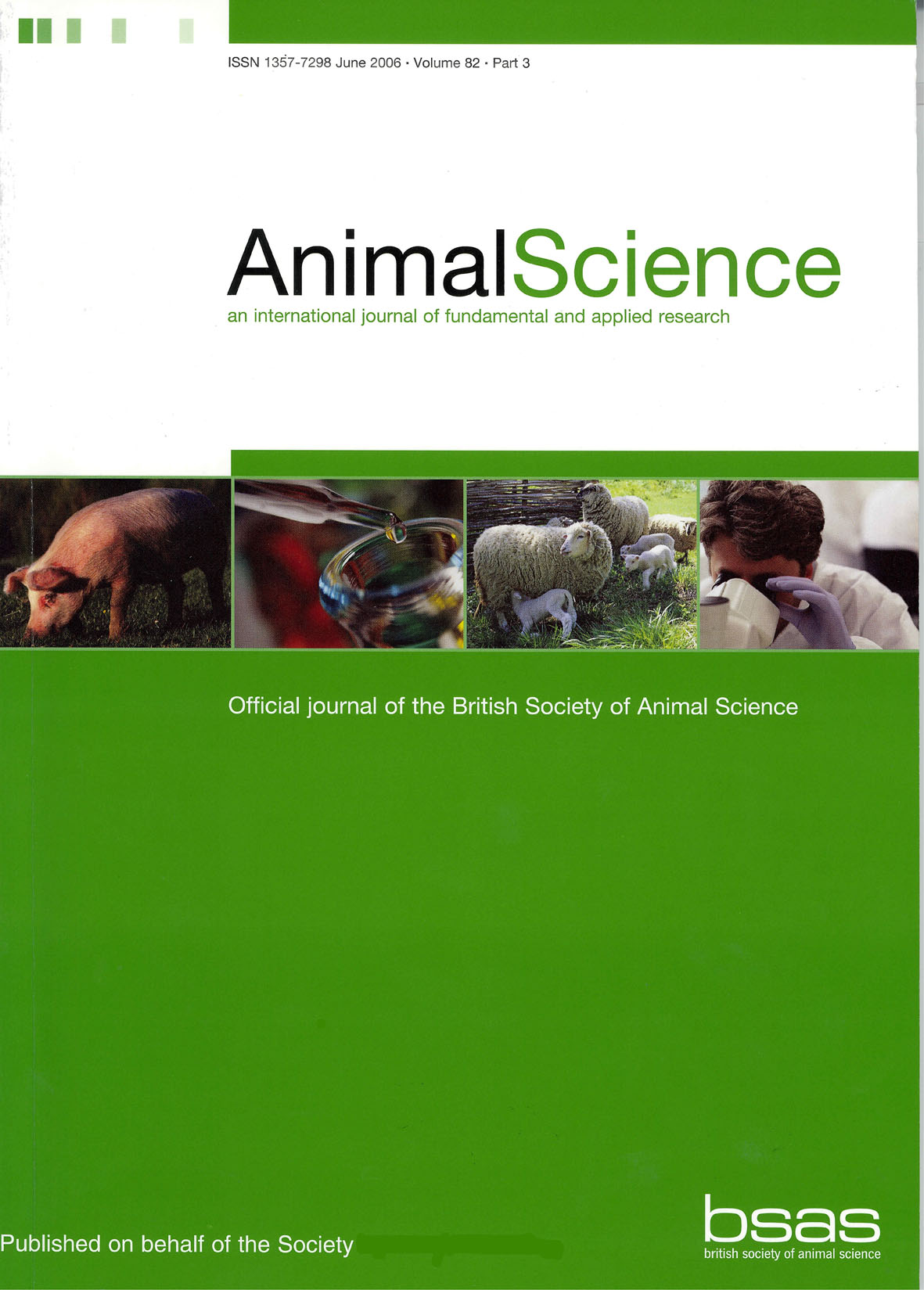Crossref Citations
This article has been cited by the following publications. This list is generated based on data provided by
Crossref.
Fernández, M.E.
Mariño, R.A.
and
Carreira, X.C.
2008.
Relationship between layout and timber structures in freestall dairy cattle barns: Influence of internal features.
Biosystems Engineering,
Vol. 100,
Issue. 2,
p.
266.
Windschnurer, I
Barth, K
and
Waiblinger, S
2009.
Can stroking during milking decrease avoidance distances of cows towards humans?.
Animal Welfare,
Vol. 18,
Issue. 4,
p.
507.
Porcher, Jocelyne
2011.
The Relationship Between Workers and Animals in the Pork Industry: A Shared Suffering.
Journal of Agricultural and Environmental Ethics,
Vol. 24,
Issue. 1,
p.
3.
Kauppinen, Tiina
Valros, Anna
and
Vesala, Kari Mikko
2013.
Attitudes of Dairy Farmers toward Cow Welfare in Relation to Housing, Management and Productivity.
Anthrozoös,
Vol. 26,
Issue. 3,
p.
405.
Przewozny, Agnes
Bitsch, Vera
and
Peters, K.J.
2016.
Performance-Based Pay and Other Incentive Schemes on Dairy Farms in Germany.
SSRN Electronic Journal ,
Lürzel, S.
Barth, K.
Windschnurer, I.
Futschik, A.
and
Waiblinger, S.
2018.
The influence of gentle interactions with an experimenter during milking on dairy cows’ avoidance distance and milk yield, flow and composition.
Animal,
Vol. 12,
Issue. 2,
p.
340.
Sharma, Arvind
and
Phillips, Clive J. C.
2019.
Avoidance Distance in Sheltered Cows and Its Association with Other Welfare Parameters.
Animals,
Vol. 9,
Issue. 7,
p.
396.
Lange, Annika
Bauer, Lisa
Futschik, Andreas
Waiblinger, Susanne
and
Lürzel, Stephanie
2020.
Talking to Cows: Reactions to Different Auditory Stimuli During Gentle Human-Animal Interactions.
Frontiers in Psychology,
Vol. 11,
Issue. ,
Andreasen, SN
Sandøe, P
Waiblinger, S
and
Forkman, B
2020.
Negative attitudes of Danish dairy farmers to their livestock correlates negatively with animal welfare.
Animal Welfare,
Vol. 29,
Issue. 1,
p.
89.
Simitzis, Panagiotis
Tzanidakis, Christos
Tzamaloukas, Ouranios
and
Sossidou, Evangelia
2021.
Contribution of Precision Livestock Farming Systems to the Improvement of Welfare Status and Productivity of Dairy Animals.
Dairy,
Vol. 3,
Issue. 1,
p.
12.
Simitzis, Panagiotis
Seferlis, Ilias
Goliomytis, Michael
Bizelis, Iosif
and
Politis, Ioannis
2021.
Handling and milking frequency affect milk yield and behavior in dairy ewes.
Small Ruminant Research,
Vol. 198,
Issue. ,
p.
106351.
Mota-Rojas, Daniel
Whittaker, Alexandra L.
Strappini, Ana C.
Orihuela, Agustín
Domínguez-Oliva, Adriana
Mora-Medina, Patricia
Álvarez-Macías, Adolfo
Hernández-Avalos, Ismael
Olmos-Hernández, Adriana
Reyes-Sotelo, Brenda
and
Grandin, Temple
2024.
Human animal relationships in Bos indicus cattle breeds addressed from a Five Domains welfare framework.
Frontiers in Veterinary Science,
Vol. 11,
Issue. ,


